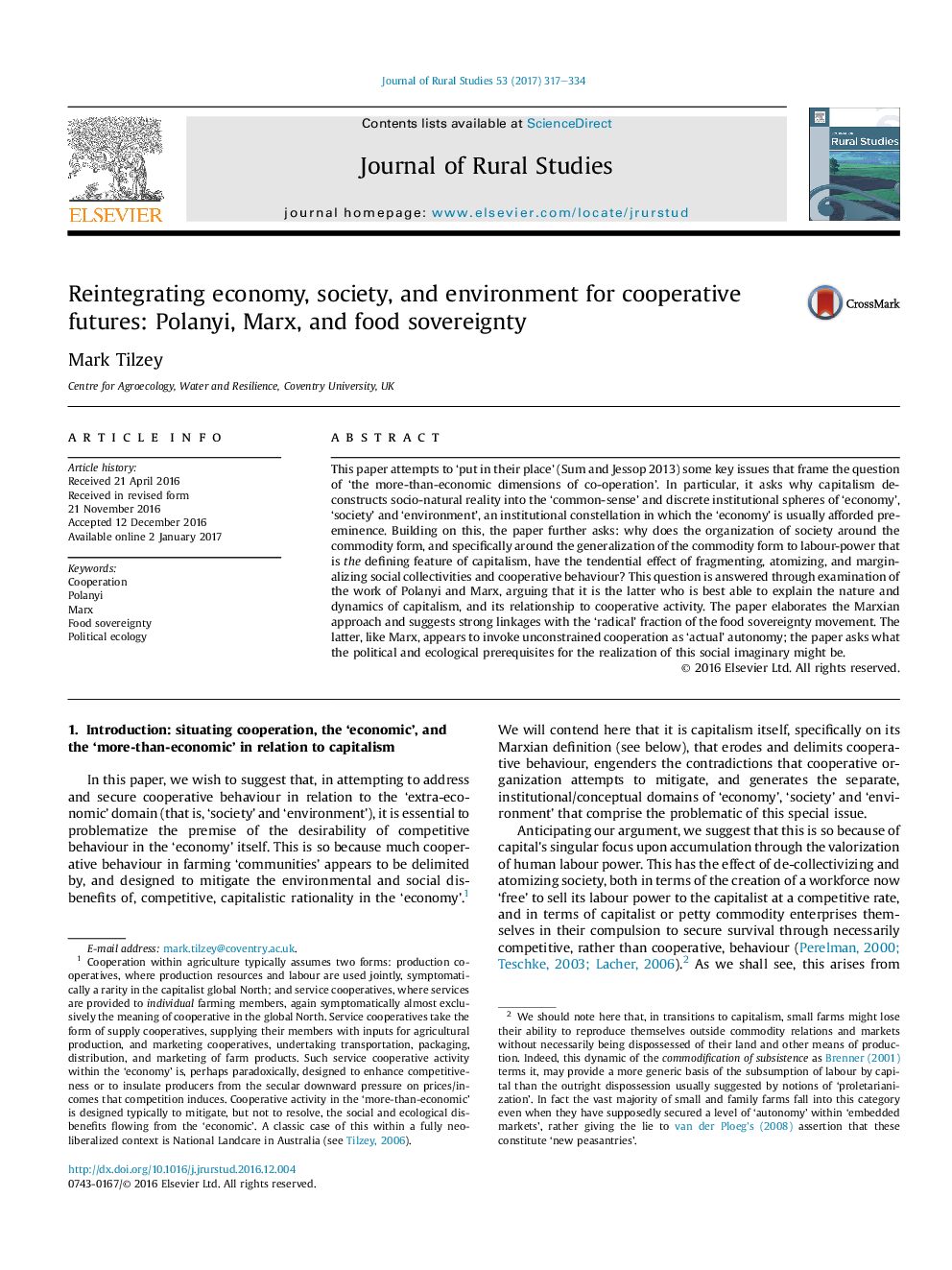| Article ID | Journal | Published Year | Pages | File Type |
|---|---|---|---|---|
| 6459977 | Journal of Rural Studies | 2017 | 18 Pages |
â¢Explores the relation between capitalism and cooperation.â¢Explores the separation of institutional spheres into the 'economic' and 'more-than-economic'.â¢Explores Polanyian and Marxian approaches to 'actual' autonomy.â¢Develops Marxian approach to food sovereignty as 'strong' cooperation.
This paper attempts to 'put in their place' (Sum and Jessop 2013) some key issues that frame the question of 'the more-than-economic dimensions of co-operation'. In particular, it asks why capitalism deconstructs socio-natural reality into the 'common-sense' and discrete institutional spheres of 'economy', 'society' and 'environment', an institutional constellation in which the 'economy' is usually afforded pre-eminence. Building on this, the paper further asks: why does the organization of society around the commodity form, and specifically around the generalization of the commodity form to labour-power that is the defining feature of capitalism, have the tendential effect of fragmenting, atomizing, and marginalizing social collectivities and cooperative behaviour? This question is answered through examination of the work of Polanyi and Marx, arguing that it is the latter who is best able to explain the nature and dynamics of capitalism, and its relationship to cooperative activity. The paper elaborates the Marxian approach and suggests strong linkages with the 'radical' fraction of the food sovereignty movement. The latter, like Marx, appears to invoke unconstrained cooperation as 'actual' autonomy; the paper asks what the political and ecological prerequisites for the realization of this social imaginary might be.
